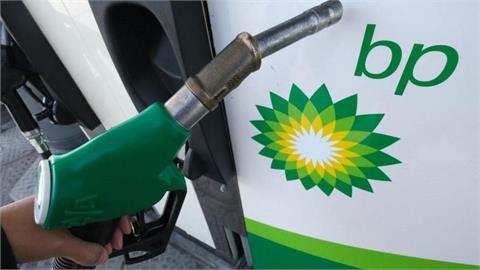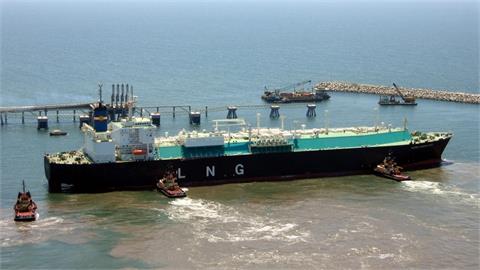by Professor Alan Riley* There is a tendency to assume lower energy prices have no downside for an energy consuming economy such as the European Union. It is assumed that lower prices will overall lift the economy and drive forward economic growth. It is undoubtedly true that lower prices will drive economic growth
There is a tendency to assume lower energy prices have no downside for an energy consuming economy such as the European Union. It is assumed that lower prices will overall lift the economy and drive forward economic growth. It is undoubtedly true that lower prices will drive economic growth. However, there is another major factor that has to be considered in assessing the overall impact of lower fossil fuel prices: supply security.
European conventional oil and gas production, which is largely offshore and in the North Sea is declining. The North Sea is now a mature oil province where it becomes increasingly technically difficult and expensive to extract the remaining resources from the seabed. Attractive tax regimes have to be introduced to encourage the necessary investment to ensure the remaining resources are extracted. The UK government for instance has been gearing up to implement the seminal Wood Report to take the steps necessary to encourage a new round of investment in the North Sea. A temporary plunge in oil prices (and a plunge in oil prices has a similar effect on gas fields) as occurred in 2009 will have a limited effect on the investment climate. However, if low prices persist then investment programmes are likely to be cancelled. Once cancelled they are much more difficult to put back in place. Capital will be reallocated and the existing infrastructure and service companies that were in place and kept the costs of the investment down will have abandoned and wound down.
This impact of medium to long term low energy prices will not just affect the North Sea. One of the few major onshore conventional fossil fuel producers is Romania. This country is also facing a significant fall in production levels which could make it significantly more dependent on external gas supplies by 2020. Romania therefore needs to fully develop its Black Sea fields. Falling oil prices will make it much more difficult to attract the investment that will ensure full development. A similar problem faces Cyprus and Greece. Cyprus particularly already faces significant geopolitical problems over access to the offshore with Turkey. Lower energy prices put another hurdle in the face of investors already struggling with the fractious political issues in the region.
The danger for the European Union is that medium to long term low fossil fuel prices will bring forward the running down of existing producing assets as ‘maintenance investment’ fails to materialize. This will have the overall effect of increasing the Union’s reliance on external suppliers.
If this were not bad enough, although Gazprom is damaged by lower energy prices it will be in a strong position to gain market share. Because most of its long term supply contracts are linked to oil over the next six months (as clauses in its supply contracts reset prices according to the lower pricing of oil) Russian gas will become more competitive on the European market.
Russian gas should become more competitive against domestic offshore European production, coal, renewables and nuclear. Lower Russian gas prices may also make it more difficult for liquid natural gas (LNG) to gain market share. Lower Russian prices may particularly make it more difficult for US LNG to enter the European market at scale.
However, for Gazprom to maximize its position and influence on the European market it will have to reconfigure its supply chain to reduce costs and extract more production for export. One of the most overlooked strategic energy questions in Europe in 2015 is whether Russia is prepared, to reform its gas market in order to maximize profits from and influence in Europe.
The prospect of rapidly declining domestic production combined with increasing Gazprom competitiveness should concentrate the minds of policymakers in Brussels, Washington, London and Berlin. Measures can be taken in terms of tax and permitting regimes to limit the damage to production from lower oil prices. One area where policymakers need to reconsider is conventional onshore development. If there are places where low cost development of conventional and unconventional onshore can take place, this may provide a further means of offsetting the fall in domestic production.
The alternative to domestic production is friendly non-domestic production. While Norway can add some production the two major potential sources of additional supply are Algeria and the United States. Algeria has substantial sources of additional gas that could be tapped, both conventional and unconventional.
The US potentially could export significant quantities of LNG to Europe. Lower oil prices on the upside reduce the Asian premium (as Asian gas prices are linked to oil prices) however, as explained above Russian prices will also fall because of the fall in oil prices. Assuming that Gazprom for a mixture of political, financial and technological reasons is unable to increase production significantly then US LNG together with Algerian gas could provide significant alternative sources of supply to Europe.
European policy makers need to be recognize first, fossil fuels cannot be wished away. Current renewable technology still needs gas as a backup and there are no current cheap and at scale alternatives to oil for transportation. Secondly, lower oil prices do not assist supply security and they can in fact jeopardize it. Thirdly, measures are needed now to tackle the threats posed to supply security before the situation deteriorates even further. In fast moving energy markets he who waits usually loses.
*City Law School, City University, Grays Inn, London
Related Reading: Oil Indexation and the Falling Oil Price: The Beginning of the End for Indexation in Europe?(www.naturalgaseurope.com/)




